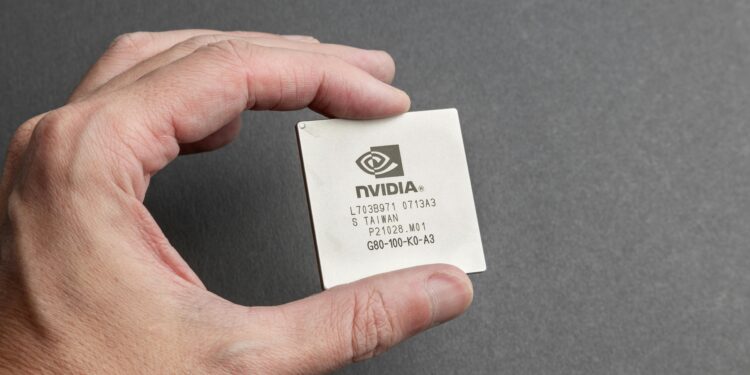Chipmaker Projects Strong Outlook Despite China Export Restrictions
Nvidia reported quarterly earnings on Wednesday that exceeded Wall Street expectations, highlighting the company’s continued dominance in powering artificial intelligence infrastructure. Despite the strong results, shares slipped in after-hours trading as investors digested ongoing uncertainty over sales to China.
For its fiscal second quarter of 2026, Nvidia posted adjusted earnings per share of $1.05, topping analyst estimates of $1.01, according to LSEG. Revenue reached $46.74 billion, also ahead of the $46.06 billion forecast, marking a 56% year-over-year increase. Net income surged 59% to $25.78 billion, or $1.05 per diluted share, compared with $16.6 billion, or 67 cents per share, a year earlier.
The chipmaker projected revenue of $54 billion for the current quarter, plus or minus 2%. Analysts had expected $53.1 billion. Nvidia noted this outlook excludes potential sales of its H20 chips to China, which remain subject to U.S. export restrictions.
The company has been at the center of the AI-driven data center boom. Data center revenue rose 56% year-over-year to $41.1 billion, fueled by surging demand from major cloud providers. Nvidia’s latest-generation Blackwell chips were a standout, with sales climbing 17% from the prior quarter. In May, the company announced that its Blackwell line had already generated $27 billion in sales, representing roughly 70% of its data center revenue.
Nvidia has faced challenges with its H20 chips, designed for the Chinese market but stalled by U.S. licensing requirements. The company wrote down $4.5 billion related to the product, estimating it could have added $8 billion in second-quarter revenue had it been cleared for sale. Although no H20 units shipped to China during the quarter, Nvidia released $180 million worth of H20 inventory to a customer outside of China.
Beyond data centers, Nvidia’s gaming division posted $4.3 billion in revenue, up 49% year-over-year. Once the company’s largest segment, gaming now plays a supporting role to AI but remains vital. Nvidia announced that its gaming GPUs will soon be optimized to run select OpenAI models directly on personal computers, bridging consumer technology with cutting-edge AI applications.
While regulatory hurdles in China remain a concern, Nvidia’s strong performance underscores its central role in the AI revolution. With robust demand for Blackwell chips and an ambitious roadmap, the company continues to set the pace for the semiconductor industry.
You might like this article:Cracker Barrel Reverts to Classic Logo After Backlash and Trump Pressure











